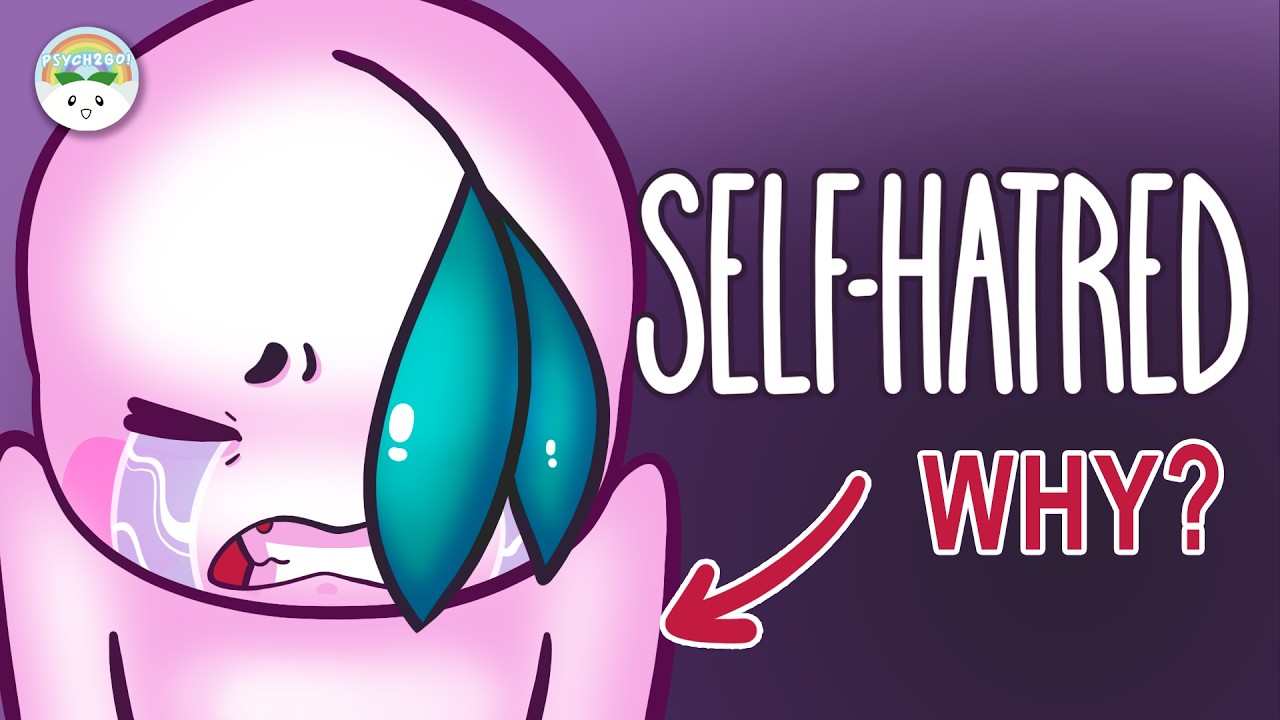Introduction
The question “Why do I hate myself?” is one that many people grapple with at some point in their lives. It’s a profound and often painful inquiry that can lead to feelings of despair and isolation. Understanding the root causes of self-hatred is crucial for healing and personal growth. This article will explore various aspects of self-hatred, including its origins, the psychological mechanisms at play, and practical steps towards healing.
The Nature of Self-Hatred
Self-hatred can manifest in various forms, including negative self-talk, self-sabotage, and an overall feeling of worthlessness. It’s important to recognize that self-hatred is not a personality trait but rather a response to certain experiences and beliefs.
Understanding Self-Perception
How we perceive ourselves can significantly influence our mental health. A negative self-image can lead to a cycle of self-loathing. Here are some factors that can contribute to a distorted self-perception:
- Childhood Experiences: Traumatic events or neglect during formative years can lay the groundwork for self-hatred.
- Societal Pressures: Media portrayals of success and beauty can create unrealistic standards that many feel they cannot meet.
- Comparisons with Others: Constantly comparing oneself to others can lead to feelings of inadequacy and self-disdain.
Root Causes of Self-Hatred
To address the question of “Why do I hate myself?”, it is essential to delve into the root causes. Understanding these underlying issues can help individuals recognize their patterns of thought and behavior.
1. Childhood Trauma
Many individuals who struggle with self-hatred have experienced some form of trauma during their childhood. This can include:
- Abuse: Physical, emotional, or sexual abuse can lead to deep-seated feelings of worthlessness.
- Neglect: Lack of affection or attention from caregivers can foster feelings of unworthiness.
- Bullying: Experiencing bullying can create lasting scars on self-esteem.
2. Mental Health Issues
Conditions such as depression, anxiety, and borderline personality disorder can exacerbate feelings of self-hatred. The symptoms of these disorders often include:
- Negative Thought Patterns: Persistent negative thoughts about oneself.
- Low Self-Esteem: A chronic feeling of being inadequate or unworthy.
- Emotional Instability: Rapid mood swings that can lead to self-destructive behavior.
3. Perfectionism
Perfectionists often set unattainable standards for themselves. When they inevitably fall short, it can result in:
- Self-Criticism: Harsh judgments about one’s abilities and achievements.
- Fear of Failure: Anxiety about not meeting expectations can lead to avoidance behaviors.
- Feelings of Shame: A sense of shame for not being perfect can fuel self-hatred.
4. Social Comparison
In today’s digital age, social media has amplified the tendency to compare oneself to others. This can lead to:
- Jealousy: Envy of others’ successes can diminish self-worth.
- Isolation: Feeling alone in one’s struggles while others appear to thrive.
- Fear of Judgment: Worrying about how others perceive one’s failures.
The Impact of Self-Hatred
Understanding the consequences of self-hatred is vital for recognizing its severity. It can impact various aspects of life, including:
1. Relationships
Self-hatred can create barriers in relationships, leading to:
- Difficulty in Trusting Others: Fear of vulnerability can prevent genuine connections.
- Self-Sabotage: Engaging in behaviors that undermine relationships.
- Isolation: Withdrawing from social interactions due to feelings of unworthiness.
2. Career
In a professional context, self-hatred can manifest as:
- Lack of Confidence: Hesitance to take on new challenges due to fear of failure.
- Burnout: Overworking oneself in an attempt to prove worthiness.
- Imposter Syndrome: Feeling like a fraud despite accomplishments.
3. Physical Health
The mental toll of self-hatred can lead to physical consequences, such as:
- Neglecting Self-Care: Ignoring physical health due to feelings of unworthiness.
- Substance Abuse: Using drugs or alcohol as a coping mechanism.
- Chronic Stress: Leading to a variety of health issues, including heart disease and digestive problems.
Finding Healing
While the journey to healing from self-hatred can be challenging, it is entirely possible. Here are some steps to consider:
1. Acknowledgment
The first step in healing is acknowledging the feelings of self-hatred. Recognizing these feelings as valid can be empowering. Consider keeping a journal to document:
- Your thoughts and feelings.
- Triggers that lead to self-hatred.
- Moments of self-compassion.
2. Seeking Professional Help
Therapy can be incredibly beneficial in addressing the root causes of self-hatred. A mental health professional can help you:
- Identify negative thought patterns.
- Develop coping strategies.
- Work through past traumas.
3. Building Self-Compassion
Practicing self-compassion involves treating yourself with the same kindness and understanding that you would offer a friend. Consider the following:
- Positive Affirmations: Regularly remind yourself of your worth and strengths.
- Mindfulness: Engage in mindfulness practices to foster self-acceptance.
- Gratitude: Focus on the positives in your life and express gratitude for them.
4. Surrounding Yourself with Support
Connecting with others who uplift and support you can significantly impact your healing journey. Look for:
- Supportive Friends and Family: Surround yourself with people who appreciate you.
- Support Groups: Join groups where you can share experiences and feelings.
- Online Communities: Engage in forums or social media groups focused on healing and self-improvement.
5. Setting Realistic Goals
Setting achievable goals can help build confidence and reduce feelings of inadequacy. Consider the following:
- Break Goals into Smaller Steps: This makes them more manageable and less overwhelming.
- Celebrate Small Wins: Acknowledge and celebrate your progress, no matter how small.
- Adjust Goals as Needed: Be flexible and kind to yourself if you need to modify your goals.
Conclusion
The journey of self-discovery and healing from self-hatred is not an easy one, but it is essential for personal growth and well-being. By exploring the question “Why do I hate myself?” and understanding its root causes, individuals can take the necessary steps towards healing. Remember, you are not alone in this journey, and seeking help is a sign of strength. Embrace the process, practice self-compassion, and allow yourself to heal.



